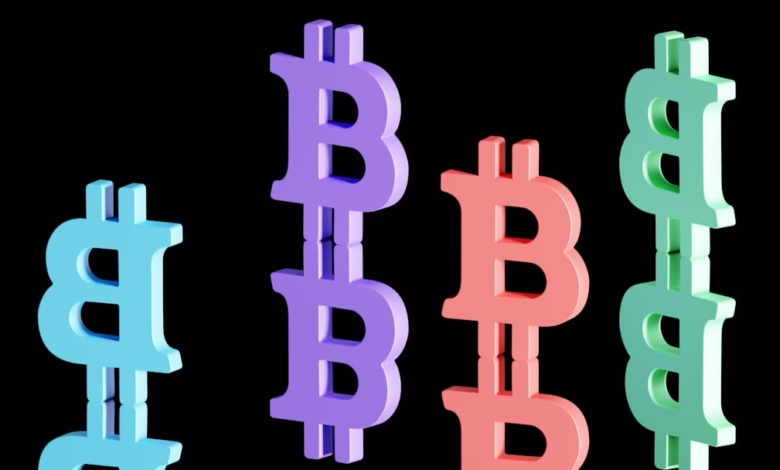Decentralized Finance Disrupted: How Blockchain Technology, Smart Contracts, and Web3 Development Are Shaping the Future of Crypto Trading

Decentralized finance, or DeFi, is rapidly reshaping the crypto landscape by delivering traditional financial services—such as lending, borrowing, and decentralized exchanges—without the need for centralized banks or intermediaries. Leveraging blockchain technology and innovative tools like smart contracts, DeFi platforms open the door to borderless, transparent, and programmable finance. The meteoric rise of DeFi is transforming everyday crypto trading and introducing new opportunities for yield farming, staking, and participation in decentralized autonomous organizations (DAOs). At the same time, the sector brings complex challenges around cybersecurity in crypto, evolving regulations, and user privacy, with cutting-edge concepts such as privacy coins and layer 2 solutions at the center of ongoing debates. As NFTs, stablecoins, and even gaming and crypto ecosystems continue to intersect with decentralized apps, understanding the current forces and future trends is crucial for anyone interested in the promise—and risks—of this new era in global finance. In this article, we’ll explore how DeFi is revolutionizing crypto trading, examine the critical risks and security issues, and look ahead to the innovations shaping the next wave of Web3 development.
- 1. How Decentralized Finance is Transforming Crypto Trading: Blockchain Technology, Smart Contracts, and Layer 2 Solutions
- 2. Navigating Risks and Security in DeFi: Cybersecurity in Crypto, Crypto Regulations, and Privacy Coins
- 3. The Future of Decentralized Finance: Yield Farming, Staking, DAOs, and Web3 Development
1. How Decentralized Finance is Transforming Crypto Trading: Blockchain Technology, Smart Contracts, and Layer 2 Solutions
Decentralized finance (DeFi) is fundamentally reshaping the landscape of crypto trading by leveraging blockchain technology, smart contracts, and innovative layer 2 solutions. Unlike traditional financial systems, where transactions depend on trusted centralized institutions, DeFi protocols enable users to engage in lending, exchanges, and asset management through transparent and trustless mechanisms. This democratization of access paves the way for increased crypto adoption around the globe and is driving the emergence of new practices and tools across the ecosystem.
At the heart of this transformation is blockchain technology, which underpins the secure and transparent recording of crypto transactions. Decentralized platforms utilize public ledgers, allowing for real-time crypto market analysis and even supporting complex applications such as gaming and crypto, NFTs, and metaverse and crypto integrations. The adoption of smart contracts automates agreements and the transfer of assets without intermediaries. For instance, yield farming and staking protocols use smart contracts to distribute rewards based on preset rules, eliminating the need for manual oversight (Gupta, 2023, https://www.coindesk.com/learn/what-are-smart-contracts-and-how-do-they-work).
With the exponential growth of DeFi, scalability and transaction costs have become central concerns; this is where layer 2 solutions come to the forefront. These protocols, built on top of existing blockchains, aim to process transactions faster and more cost-effectively. By offloading much of the activity from the main network, layer 2 solutions like rollups increase throughput and improve user experiences for platforms ranging from decentralized exchanges to NFT marketplaces (Buterin, 2022, https://vitalik.ca/general/2022/06/15/using_rollups.html).
Another crucial aspect is the enhancement of user privacy and security. New DeFi platforms are exploring privacy coins and improved crypto wallets, aiming to provide robust protections against cyber threats while ensuring regulatory compliance. Crypto regulations and crypto taxation are ever-evolving, prompting DeFi solutions to integrate compliance tools directly into their platforms (Turk, 2023, https://www.finextra.com/blogposting/24126/defi-compliance-and-taxation-striking-the-right-balance).
Furthermore, decentralized autonomous organizations (DAOs) and innovative tokenomics models are enabling the governance and distribution of resources in a more community-centered way. As demand rises for novel fundraising methods, ICOs and token offerings continue to evolve, though often under the scrutiny of global financial authorities interested in sustainability in crypto and the social impact blockchain can provide.
In summary, DeFi is rapidly pushing the boundaries of what is possible in crypto trading. With the integration of advanced blockchain technology, smart contracts, and scalable layer 2 solutions, decentralized finance is driving greater efficiency, accessibility, and transparency across the sector—reshaping how value is created, transferred, and governed in the cryptocurrency world.
References
Buterin, V. (2022). Using Rollups. Retrieved from https://vitalik.ca/general/2022/06/15/using_rollups.html
Gupta, S. (2023). What are Smart Contracts and How Do They Work. CoinDesk. Retrieved from https://www.coindesk.com/learn/what-are-smart-contracts-and-how-do-they-work
Turk, D. (2023). DeFi compliance and taxation: striking the right balance. Finextra. Retrieved from https://www.finextra.com/blogposting/24126/defi-compliance-and-taxation-striking-the-right-balance
2. Navigating Risks and Security in DeFi: Cybersecurity in Crypto, Crypto Regulations, and Privacy Coins
As decentralized finance (DeFi) continues to redefine how users interact with financial systems, understanding the landscape of risks and security is critical for anyone engaging in cryptocurrency or blockchain technology. With the absence of traditional banks and oversight, participants must proactively manage a range of security and regulatory concerns that go beyond those faced in conventional finance.
Cybersecurity in crypto is a pressing issue given the increasing number of attacks on smart contracts, exchanges, and crypto wallets. Smart contracts, while automating processes such as crypto trading, NFTs, and yield farming, have occasionally been exploited due to coding vulnerabilities. These vulnerabilities can result in significant financial losses, like those seen in high-profile DeFi hacks, highlighting the need for robust Web3 development practices—including extensive audits and the adoption of layer 2 solutions for enhanced security and scalability.
Another challenge for DeFi users is navigating the evolving landscape of crypto regulations. Unlike traditional financial sectors, decentralized finance often operates in a legal grey area—with regulations varying widely across jurisdictions. Recent moves by governments worldwide to introduce or tighten policies around ICOs, token offerings, and stablecoins illustrate this complexity (Cummings, 2023, https://www.cnbc.com/2023/05/15/crypto-regulations-debate.html). Ongoing crypto market analysis is essential for crypto startups and individual investors to stay compliant and avoid pitfalls related to crypto taxation or unauthorized cross-border payments.
Privacy coins add an additional layer to this conversation, as they are specifically engineered to maximize user anonymity. While privacy-centric cryptocurrencies offer benefits for those valuing confidentiality, they also pose challenges for regulators concerned with anti-money laundering (AML) and combating the financing of terrorism (CFT) (Chen & Gupta, 2022, https://cointelegraph.com/news/privacy-coins-compliance). Striking a balance between privacy and compliance remains contentious, especially as central bank digital currencies (CBDCs) and traditional crypto assets like Bitcoin gain traction.
In summary, navigating DeFi involves keeping up with rapid innovations in blockchain technology while vigilantly addressing cybersecurity risks and regulatory requirements. As the sector matures—with advancements in staking, DAOs, and new tokenomics models—adopting proactive security measures and remaining aware of both global and local legal frameworks is vital for long-term success and sustainability in crypto.
References
Chen, A., & Gupta, S. (2022). Privacy coins face compliance challenges as regulations evolve. Cointelegraph. https://cointelegraph.com/news/privacy-coins-compliance
Cummings, B. (2023). Crypto regulations spark global debate as DeFi grows. CNBC. https://www.cnbc.com/2023/05/15/crypto-regulations-debate.html
3. The Future of Decentralized Finance: Yield Farming, Staking, DAOs, and Web3 Development
The future of decentralized finance holds enormous potential, with innovations such as yield farming, staking, DAOs (Decentralized Autonomous Organizations), and Web3 development rapidly reshaping the landscape of cryptocurrency and blockchain technology. These advancements are creating more opportunities for users, developers, and institutions to participate in financial activities without relying on centralized intermediaries.
Yield farming is emerging as a high-reward strategy in the DeFi space, allowing crypto holders to provide liquidity to decentralized exchanges and crypto trading platforms in exchange for returns, often paid in native tokens. This approach leverages smart contracts to automate and secure transactions, while tokenomics play a central role in incentivizing protocol participation. However, as yield farming grows, it also brings greater scrutiny regarding crypto regulations, cybersecurity in crypto, and crypto taxation, which may shape its evolution.
Staking—locking up assets to support blockchain networks and validate transactions—also has a critical role in DeFi’s future. Through staking, users can earn passive income while promoting the security and sustainability in crypto ecosystems, especially in proof-of-stake blockchains. Staking is becoming more user-friendly with evolving crypto wallets, enhancing crypto adoption even among those new to blockchain technology.
DAOs offer a decentralized alternative to traditional corporate governance. By utilizing voting mechanisms built on smart contracts, token holders can steer the development of crypto startups, gaming and crypto projects, and even social impact blockchain initiatives. DAOs exemplify the growing trend towards democratized decision-making in the crypto sector and may soon play a pivotal part in areas such as NFT curation, metaverse and crypto development, and cross-border payments.
Web3 development is paving the way for a new generation of decentralized applications (dApps) that encompass everything from crypto exchanges and NFT marketplaces to privacy coins and stablecoins management tools. This paradigm shift places users in control of their data and digital assets, with advancements in layer 2 solutions promising greater scalability and lower transaction costs.
As these DeFi trends gain momentum, new challenges will arise. Issues around crypto market analysis, cybersecurity, and sustainable crypto mining will need to be addressed. Meanwhile, the integration of CBDCs (Central Bank Digital Currencies) and evolving crypto regulations will shape the path to mainstream acceptance.
Ultimately, the convergence of yield farming, staking, DAOs, and Web3 development signals a dynamic future for decentralized finance—one driven by continual innovation, enhanced transparency, and expanding access to financial services worldwide.
Decentralized finance represents a pivotal evolution in the world of cryptocurrency, bringing unprecedented opportunities and challenges to the forefront of global finance. By leveraging blockchain technology, smart contracts, and innovative layer 2 solutions, DeFi empowers users to access financial services like lending, staking, and cross-border payments without dependence on centralized institutions. This shift not only transforms the crypto trading landscape but also introduces new dimensions to token offerings, yield farming, NFTs, and Web3 development.
However, as DeFi continues to grow, it is essential for participants to address the complex issues of crypto regulations, cybersecurity in crypto, and evolving frameworks around privacy coins and crypto taxation. The integration of stablecoins, DAOs, and crypto wallets further enhances the security and usability of decentralized systems, while also demanding vigilance against emerging cyber threats and compliance challenges.
Looking ahead, the future of decentralized finance promises increased crypto adoption in areas such as gaming and crypto, social impact blockchain, and the metaverse. Crypto startups are actively driving innovation in sustainability in crypto, tokenomics, and CBDCs, while DAOs and community-driven projects are redefining governance models. As crypto market analysis becomes more sophisticated, the continued development of DeFi will likely influence how individuals and institutions interact with financial ecosystems worldwide.
For both newcomers and experienced participants, understanding the risks and rewards of decentralized finance is vital. By staying informed about the latest developments in crypto mining, layer 2 solutions, and token offerings, users can better navigate this rapidly evolving space. Ultimately, decentralized finance is not just transforming how we manage assets—it’s accelerating the adoption of blockchain technology and reshaping the very foundations of the global financial system.





